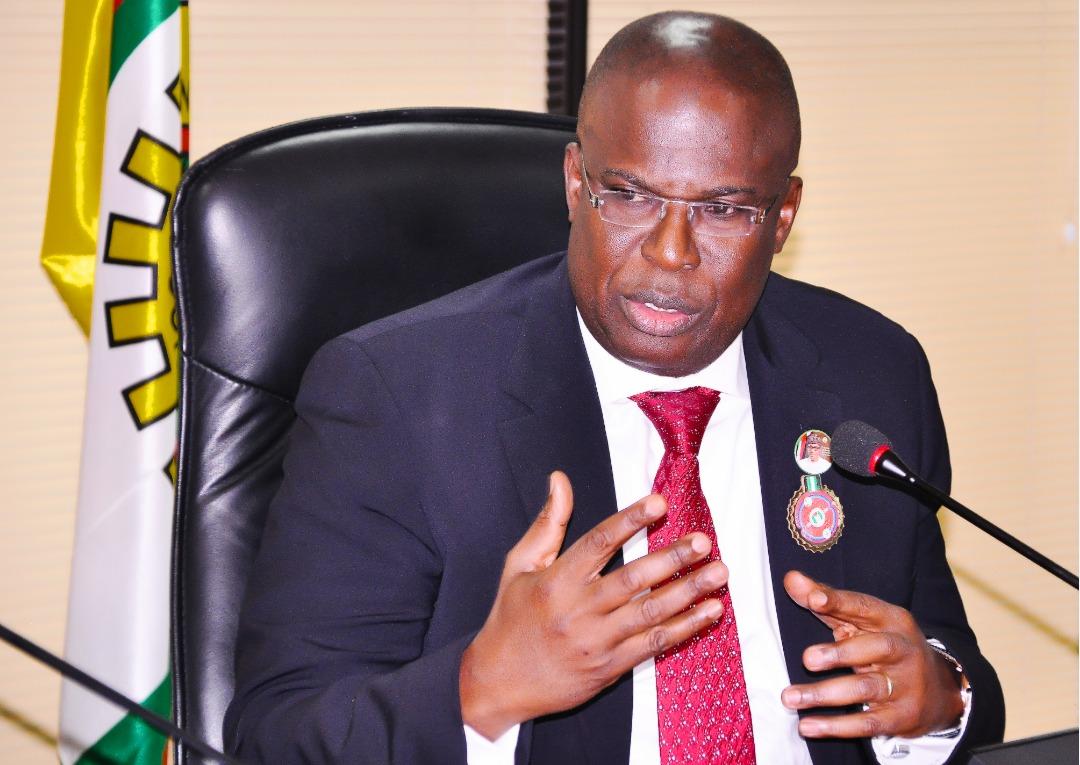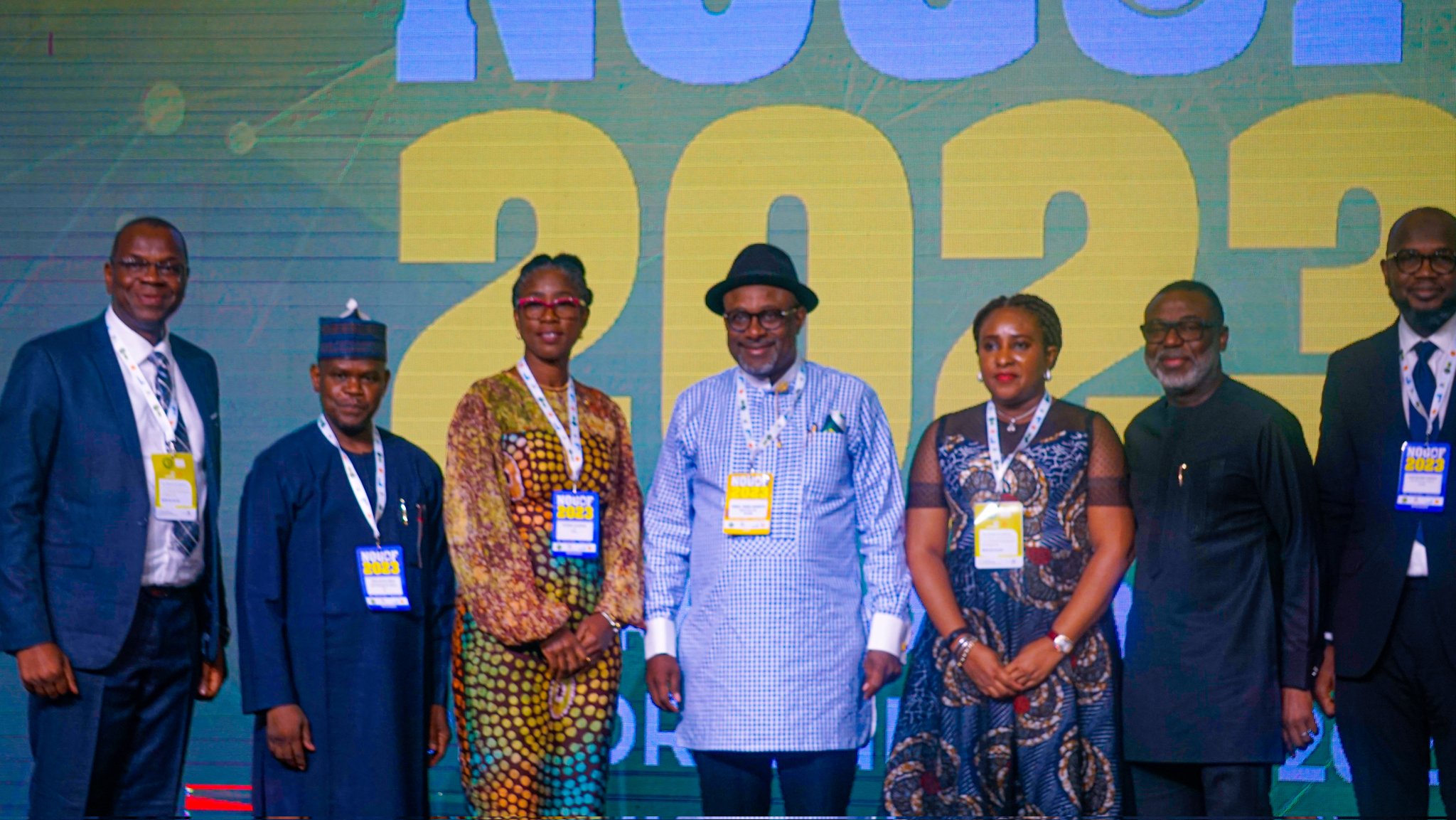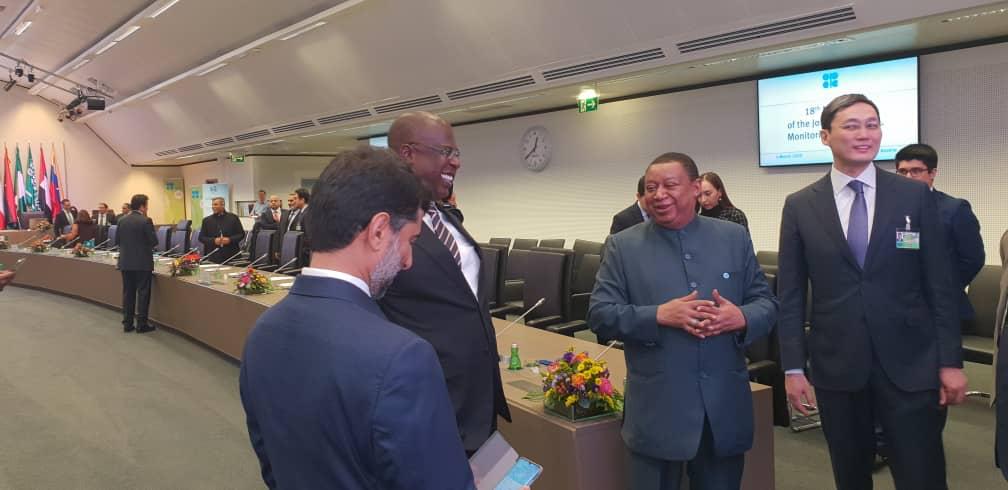The Federal Government has described the Nigerian Gas Association (NGA) as a strong entity “continuously influencing and increasing the role of natural gas as a preferred energy source, as well as using the NGA platform to promote the development of the gas industry in Nigeria”.
Presenting his Keynote speech at the association’s 2021 Business Forum & Annual General Meeting (AGM) Tuesday in Abuja, the Minister of State for Petroleum, His Excellency Chief Timipre Sylva, said he is humbled and honored to be part of this year’s Business Forum which has been so aptly themed: ‘‘Petroleum Industry Act (PIA): Progress & Opportunities In The Decade of Gas.’’
The minister represented by his Technical Adviser (TA) on Gas Business & Policy Implementation; Engr. Justice O. Derefaka, averred that “It is so aptly themed because I believe at the end of this Business Forum, we are bound to achieve more efficient, coherent, and coordinated activities toward boosting energy access and developing Nigeria’s gas sector; plus, accelerating progress in scaling up investments in Nigeria’s gas industry through dialogue and partnerships. And the reason is simple, Nigeria is one of the world’s last energy frontiers, a nation brimming with enormous opportunities.”
“But then, I want you all to hear and note this: The bedrock and foundation of the FG’s Decade of Gas Development Initiative and our Energy Future is hinged on Collaborative Partnership.
“To make that happen, individual and corporate Nigerians, as well as governments at all levels, must develop a new enlightenment, an energy literacy that includes a profound understanding that energy pervades all aspects of our lives and is a key component of our social fabric, one that is so influential and charged as a strong force of national unity.
“Energy is everyone’s business and involves a complex set of interests and values. The guiding principle for our country in creating an exceptional energy system for the 21st century must be “responsible development”. Development is responsible when it recognizes the interests and values involved with energy matters in four dimensions, namely economic, environmental, social and energy security. A change in one dimension automatically affects the others.
“On that premise ladies and gentlemen, permit me to quickly x-ray “The progressive role of natural gas in Nigeria and the diverse opportunities” and/or what I presume would be called the “Golden Age of Gas” post 2030.
“With the Petroleum Industry Act (PIA) 2021, Nigeria is presently in the enviable “catbird seat” as an energy powerhouse, ready to become one of the world’s most energy productive nations, with excellent environmental performance and wealth in all parts of the country. And natural gas stands out and fits in perfectly in that regard.
As you all know, the natural gas story is being rewritten right now, regardless of what title we give it. It is becoming a far more engaging story, one that has the potential to transform Nigeria, Africa, and the world for the better.
Explaining more on the implications and consequences of natural gas, as well as the role gas can play as a “safe, abundant force for good” in fulfilling our future energy demands, the Minister noted that “This is because natural gas will be needed for several generations as long as human civilization need energy. Which also makes me wonder why the developed countries should reap the benefits of industrialization and deny developing countries like ours from enjoying the benefits of gas.
No doubt natural gas is seen as the oxygen and lifeblood of Nigeria’s socio-economic resurgence. Most experts agree that the ability to cost-effectively develop our vast deposits of natural gas is a game changer for our energy future. This resource base represents new opportunities for domestic and global economic growth, as well as changing fuel choice options in multiple sectors.
We must keep demonstrating that natural gas is a part of the solution if the world is concerned about climate change and pollution.
Natural gas and renewables have an unusually happy interaction. Natural gas, in my opinion, should not be viewed as a competitor to renewable energy. Rather, natural gas should be seen as a great ally and partner for renewable energy, which should be viewed as a demand driver for natural gas.
It is not a question of choosing fossil fuels or renewables; both are vital to meet demand in the coming decades.
The big challenge for our society is how to provide much more energy with much less CO2 – hence the deployment of natural gas as a bridge fuel & a key resource for a green energy transition. And as you can see natural gas has all the credentials to support the UN-17 SDGs.

For us as a nation, the above assertions are remarkably significant because Nigeria has commenced its long-haul flight on the “Wings of Gas’.
As of 1st January 2021, Nigeria’s proven Natural Gas Reserves stands at 206.53tcf of gas. Associated Gas is 100.73tcf and Non-Associated Gas is 105.80tcf of gas and a potential upside of 600TCF of gas, the most extensive in Africa, and in the top 10 globally.
The growth of our gas reserves is a critical lever to achieving Federal Government’s “Decade of Gas Initiative’’, aimed at transforming Nigeria to a gas-powered economy by 2030.
The benefits of natural gas are well documented as you can see. It is flexible. Its supply is abundant and diverse. Its range of uses is still expanding. And it makes economic sense.
Natural gas is a game changing fuel. And the FG is poised to make it a platform fuel for the Nigerian economy. This is because our abundant natural gas will enable us to rebalance our energy portfolio, using it for power, electricity, petrochemical, agriculture, manufacturing, transportation etc
And the FG is bent on ensuring this come to fruition with last year’s declaration as “The Year of Gas”.
Building on that, in January last year (2020) we inaugurated the FG’s flagship program tagged The National Gas Expansion Programme (“NGEP”) as the mechanism to boost domestic utilization of Natural Gas in Nigeria in the short and medium term.
As His Excellency, Mr. President stated earlier in the year, when we declared 2020 as “The Year of Gas” in Nigeria, it was a bold statement to demonstrate this Administration resolve that gas development & utilization is a national priority. And so, this year, we went a step further to dedicate this decade to industrializing Nigeria using gas. These realizations prompted us to tag year 2021-2030 as the ‘Decade of Gas’ development in Nigeria. The Initiative at inauguration by Mr. President was themed “Towards a gas-powered economy by 2030” – to address challenges around the Nigeria power generation through gas powers plants i.e., tackling the “power gap” and/or “energy poverty”
The “Decade of Gas Initiative”, a successor to the ‘Year of Gas’ declaration heralded several projects in the Nigeria Gas space. Notable among which are the 614KMs Ajaokuta-Kaduna-Kano (AKK) pipeline network to connect the eastern, western, and northern regions on the gas network and the NLNG Train 7 Project.
Other projects are the Go-Live of the National Gas Transportation Network Code necessary to stimulate the multiplier effect of gas in the domestic economy. The network code is also a gas market liberalization enabler aimed at ensuring gas pipeline integrity and open access to pipeline and common understanding on metering.
The Decade Of Gas is a decade of elimination of gas flaring, a decade of more domestic Liquefied Petroleum Gas (LPG), and a decade of fully gas-powered economy. For us as a nation, natural gas is power. It is transport, as in natural gas vehicles (what is popularly known as Auto-gas). Gas is petrochemicals-feed stock. Gas is manufacturing and industries, it is also food, as components of gas are used to make fertilizer, helping to feed millions of people
Continuing, he added that “The President’s assent to the Petroleum Industry Bill on August 16, 2021, making it an Act of Parliament has marked the end of decades of inaction, ambiguity, indecision, and under-investment in Nigeria’s petroleum industry. This lack of progress has idled the growth of the industry and the prosperity of our economy
The PIA 2021 has created a critical foundation for the much-desired industrialization & economic development of this Country. It also has generous incentives to enable development, distribution, penetration, and utilisation of gas.
The PIA is part of the FG’s resolve & commitment to building a competitive & resilient petroleum industry that will attract investment, improve revenue base, create jobs & support the economic diversification agenda.
It is a supply-side enabler, capable of provoking and triggering commercial interests & investments in gas utilisation. Even as it treats gas as a stand-alone commodity, Plus, it creates a distinct midstream decoupled from upstream gas.
The Gas Flare (Prevention of Waste & Pollution) Regulations 2018 of the Nigerian Gas Flare Commercialisation Programme (NGFCP) is ‘Grandfathered’ in the PIA with imposition of stiffer penalty for gas flaring, which shall not be deductible for tax purposes, unless as may be permitted by the Minister subject to certain conditions.









